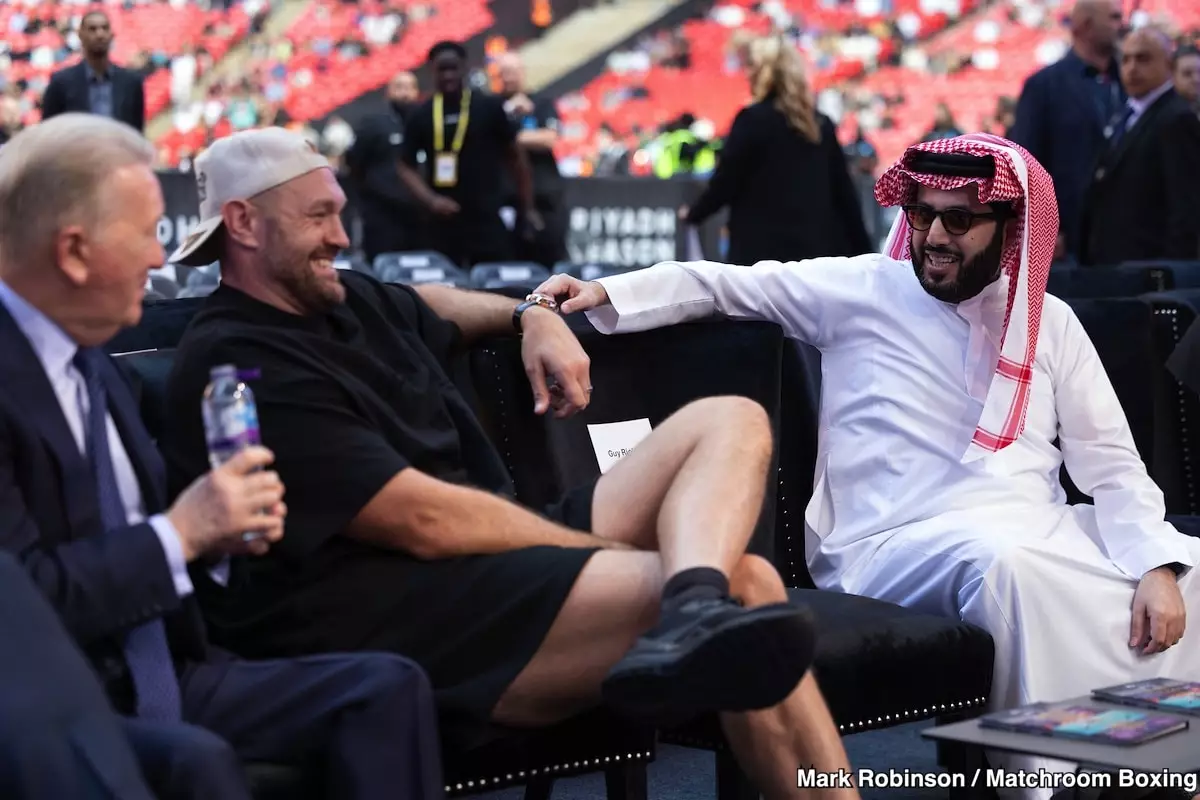For athletes, particularly in combat sports like boxing, age can be an unforgiving adversary. Former heavyweight champion Riddick Bowe recently shared his perspective on this inevitable decline, particularly regarding Tyson Fury. Bowe, a legendary figure in the ring, candidly reflected on the moment every fighter faces—a weariness of the relentless pursuit of victory that often comes with an aversion to taking punishment. As Fury prepares for a critical rematch against Oleksandr Usyk, Bowe’s comments cast shadows over Fury’s future, provoking deeper questions about physical and psychological endurance in the demanding sport of boxing.
Tyson Fury’s journey as a heavyweight titlist has been nothing short of mesmerizing. Renowned for his height, agility, and tactical acumen, he has consistently found ways to outmaneuver opponents. However, Bowe suggests that those attributes may no longer be enough. At 36, Fury competes in an era where younger fighters, such as Usyk, possess not only skill but also an insatiable hunger for success. The intensity of the combat sport demands more than just talent; it requires a fighter’s heart, willingness to absorb punishment, and, above all, an unwavering desire to win.
In their initial encounter, Fury proved formidable despite facing difficulties—including moments of being rocked during the ninth round. Despite his resilience, there’s a growing concern that his ability to withstand hits may have diminished as age creeps in. Bowe’s assertion that Fury “doesn’t have it no more” raises a crucial point: has the eager and audacious fighter we once knew begun to retreat from the intensity of the sport?
Riddick Bowe stresses not only the physical aspects of boxing but also the mental attributes that separate mediocre fighters from champions. The idea that a fighter might reach a point where they are no longer willing to face the brutal reality of the sport could weigh heavily on Fury’s upcoming performance. Bowe’s own experience, where he reached a moment of fatigue with the relentless grind of boxing, resonates deeply, posing the question: could Fury feel similarly burned out?
Reflecting on the intensity of competition, Bowe suggests that a fighter’s willingness to endure punishment and push through adversity is crucial to their success. This psychological element may become a deciding factor in the rematch against Usyk. If the bout evolves into a test of who wants it more, does Fury possess the same desire that defined him in his prime?
As fans eagerly anticipate the rematch set for December 21 in Riyadh, Saudi Arabia, the stakes are unprecedented. Omens of past encounters, narrative arcs, and personal transformations meld to create expectations laced with uncertainty. While Fury has showcased exceptional talent, one must question his readiness to embrace the toll that a high-pressure fight exacts. Bowe’s skepticism about Fury’s punch resistance introduces the possibility of a different outcome this time around.
The potential for Fury to be stopped is an intriguing scenario, especially considering the expectations that accompany such elite-level competition. Historically, champions are defined not just by their victories but by their ability to withstand and absorb punishment. Is Fury’s chin still reliable? As he enters the ring against Usyk, viewers will witness whether his elite resilience remains intact or if time has indeed altered the fabric of his identity as a fighter.
As the rematch between Tyson Fury and Oleksandr Usyk looms closer, Riddick Bowe’s contemplations bring essential issues to the forefront of boxing discourse. The intersection of age, mental fortitude, and physical capability poses significant considerations not only for Fury but for all elite boxers facing the passage of time. While boxing is often perceived as a physical sport, it is divisible by the intangible elements of desire and resilience that define a champion’s legacy.
As we watch Fury’s performance on December 21, we must ponder not only the triumphs and flaws on display but the broader implications of his career in context. In the face of champions, age is indeed a factor, and it is a question that transcends individual matches, speaking to the heart of the sport itself.

